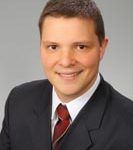The Edward J. Bloustein School of Planning and Public Policy at Rutgers University and The Louis Berger Group have announced the selection of the Louis Berger Graduate Fellows for the upcoming academic year. The 2014-15 Fellows are Guadalupe Gutierrez-Escribano, Katharine Magiera, Patrick Salemme, and Ruchi Shrivastava.
Created in 2009, the Berger Fellows program enables Master of City and Regional Planning and/or Master of Public Policy students from the Bloustein School to be considered for a comprehensive fellowship award and earn credit during a professional internship at one of the company’s international locations. At the conclusion of their first year of study each Fellow embarks upon a full-time summer internship as a member of one of LBG’s international project teams, which carry out planning and engineering projects from over 80 locations around the world.
The Bloustein School and LBG have a long-standing relationship; many of the school’s graduates are or have been senior managers with the firm, and the company has provided financial and other support to he Bloustein School for over 10 years – part of LBG’s broad commitment to corporate responsibility and sustainability.
The 2014-15 Berger Fellows and their assignments are as follows:
Guadalupe Gutierrez-Escribano (Panama City, Panama)
A native of the Loma Hermosa (“Beautiful Bump”) section of Buenos Aires, Guadalupe Gutierrez-Escribano first understood the possibilities of urban planning following her own childhood and young adult experiences. While working with a local non-profit before her final year of college, she was shocked to discover the sheer numbers of people living in impoverished slum areas without access to clean water and food. While trying to understand how politics and increased access to education could compel change, she attended a conference at the University of Buenos Aires that set her thoughts in a new direction, discovering that first and foremost infrastructure planning—changing the city itself— was before cultural and social stagnation could be addressed. At the Bloustein School Guadalupe’s focus is in both infrastructure planning and methods. Her primary interests are in the design of transportation networks, social housing strategies, providing systems for potable water, energy and waste management, and the development of community facilities, with the understanding that the design of such would not be possible without a comprehensive analysis of the factors that impact urban areas. Her professional goal is to improve social mobility, and the resulting human and economic development, through the renovation of urban areas in impoverished regions of the developing world, primarily in Latin America. Guadalupe was assigned to the company’s Panama City office to work on the Involuntary Resettlement Project for Chan II. Panama is going through an energy crisis, which led the nation’s leaders to decide to build two dams –Chan I and Chan II –on Changuinola, the largest river in Bocas del Toro Province of Panama. Both dams will inundate a large area in the rain forest, an area where indigenous groups of the Gnabe people live. Exclusively involved in this project, Guadalupe was appointed to design the survey instrument, an algorithm to measure the communities’ vulnerability levels and relocation preferences.
Katharine Magiera (Paris, France)
Katharine Magiera credits three specific opportunities as having profoundly shaped her perspective as a planner. While participating in a study abroad program with the Council on International Exchange (CIEE) in Tokyo, Japan she lived with a local family in central Tokyo for 6 months, where she was immersed in the culture and language on a daily basis. In addition to taking an intensive language course, she also studied international economics and modern Japanese fiction at the prestigious Sophia University. Later, As part of a 10-month senior thesis project as an undergraduate at Barnard, she became interested in working on innovative, large-scale projects in a professional setting while researching her findings on Dubai’s (United Arab Emirates) planned infrastructure and industrial developments since oil discovery in the mid-1960s. And just prior to enrolling at EJB, she left a 4-year career in the financial sector to spend time in Pompidou, France as a volunteer with Worldwide Opportunities on Organic Farms (WWOOF), during which time she learned the basics of working in an agricultural environment. Having experienced traveling in Europe, the Americas, and Asia, she was fascinated with the intersection of makeshift and planned transportation infrastructure in cities with extreme density, while noting that developing cities must focus on extending and rebuilding existing transit networks to improve urban mobility to consider critical environmental, socioeconomic, and technical issues. Working for LBG’s Transport Economics Group out of the Paris office, she is involved with three projects: an infrastructure assessment in Burkina Faso, which has an uneven road system and faces additional development; a major traffic study in Santo Domingo, Dominican Republic (DR) where she is conducting an analysis on how the country’s socioeconomic situation and tourism industry have influenced current traffic conditions, and how these factors are projected to change over the next 20 years; and a project helping to map the private sector investor network in Africa.
Patrick Salemme (Gurgaon (Delhi), India)
After graduating from Brown University with dual concentrations in economics and international relations, Patrick Salemme worked for Merrill Lynch, where he supported a top team of institutional financial advisors and worked to improve internal business processes. He later joined their Supply Chain Executive Board, where he was responsible for research project management, including development of plug-and-play tools and the publication of annual research findings in demand planning and supply chain management. Before enrolling at the Bloustein School/Rutgers Business School joint MCRP/MBA program he interned at the New Jersey Department of Environmental Protection’s Office of Watershed Management, where he helped build a mathematical model to help the DEP allocate Clean Water Act funds more efficiently, as well as with the Regional Planning and Development office of the Port Authority of New York and New Jersey, where he was able to contribute to ongoing research on macroeconomic drivers of transportation. With the knowledge that much of the world lacks the physical, institutional, and social infrastructure to empower individuals to create a future that is better for their children, his interest in economic development has crystallized into belief in the transformative power of physical infrastructure and the crucial role of private firms in making tomorrow a better place. His ultimate career aspiration is to work in a consultant role to help clients to frame and understand the service offerings that will help solve the complex problems of growth. He is currently supporting LBG’s Integrated Development Division as a Senior Analyst leading the Delhi-Mumbai Industrial Corridor (DMIC) portfolio. In this position, Patrick is responsible for the development of LBG’s proposal document for DMIC’s next major Request for Proposal (RFP), a 165 square kilometer greenfield mixed-use city project known as the Khushkhera-Bhiwadi-Neemrana Investment Region (KBNIR), which will incorporate extensive non-motorized transport and mass transit as well as IT infrastructure for “smart” city management.
Ruchi Shrivastava (Mumbai, India)
Ruchi Shrivastava earned her architecture degree from India’s Maulana Azad National Institute of Technology, during which time she interned at several architecture and construction practices in India. She went on to work with several leading architecture and construction firms in Bangalore, India, assisting senior architects in design development and creating construction documents for residential, commercial and interiors projects as well as a multinational company with global presence and a wide range of projects and services in engineering, design, procurement and construction. Working with international professionals who studied and worked on projects abroad helped her acknowledge that global exposure gives a different perspective towards design, planning, and the construction process, and that architecture, planning, and construction cannot be practiced in isolation from the other. Having a long time dream of attaining her education abroad, her goal is to specialize in transportation and environmental planning and earn a certificate in GIS in order to address the future challenges in urban context related to transportation, infrastructure and environment. Ruchi is involved in transportation and infrastructure planning projects in LBG’s Mumbai office.. She is working on the Navi Mumbai Metro Line 1, which is a rapid transit rail project being constructed in Navi Mumbai. She has also been involved in the Juhu Vile Parle Depot (JVPD) junction improvement project which plans to improve the JVPD junction in order to reduce traffic congestion and avert the over-crowded JVPD junction in Mumbai.




